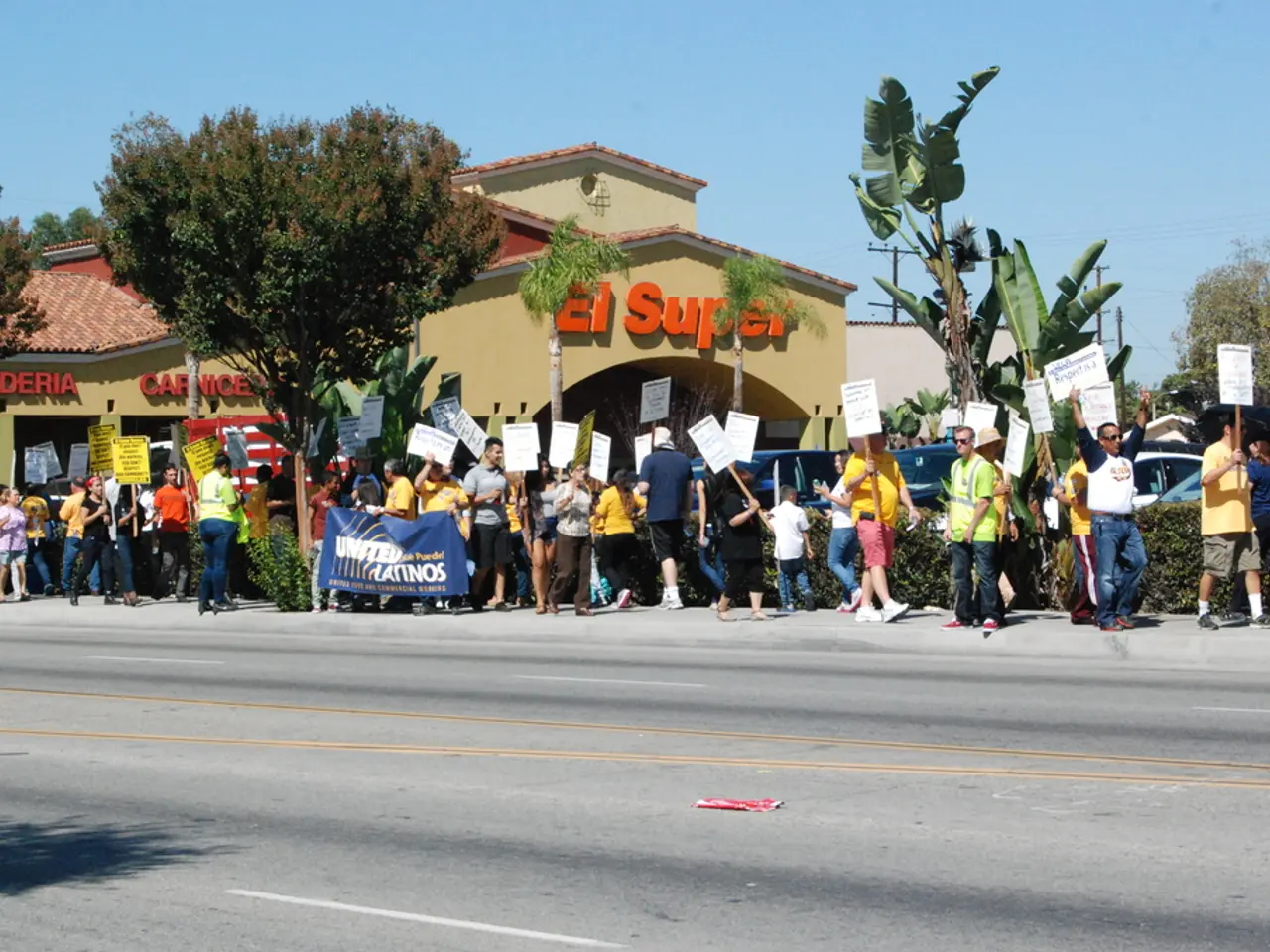Decentralized Electoral Processes for Political Campaigns Utilizing Blockchain Technology
In the ever-evolving digital landscape, a promising new technology is being explored for its potential to revolutionise political campaigns: blockchain. Although its widespread implementation in voting systems is still in its infancy, several notable case studies and trials have emerged, showcasing the technology's potential to enhance transparency, security, and trust in elections.
One such example is South Korea, where the National Election Commission conducted a trial of a blockchain-based online voting system in 2018. The trial was considered a success, demonstrating the technology's potential to ensure a secure and transparent voting process [2]. Similarly, a research paper proposed a simplified model for enhancing electoral integrity using blockchain in Oman's digital voting system [2].
Denmark's Liberal Alliance expressed interest in integrating blockchain into their national elections back in 2014, although detailed outcomes of this integration are not widely reported [2]. Estonia, known for its electronic voting system since 2005, has not yet specifically integrated blockchain into their national elections [2].
Beyond voting systems, political movements are also embracing blockchain. The Official TRUMP project, for instance, combines cryptocurrency with political engagement, aiming to use blockchain for transparent donations and voter engagement [1]. This initiative, while not a voting system itself, highlights the potential of blockchain in political contexts.
However, the path towards mainstream adoption of blockchain-based voting systems is fraught with challenges. Security and transparency are essential for electoral integrity, but concerns about vote buying and other issues remain to be addressed [2]. Developing legal and regulatory frameworks that support these systems is crucial for their widespread adoption.
Political leaders can promote pilot programs, work with regulatory bodies, educate voters, and build partnerships with technology providers to ensure secure implementation. Blockchain's immutable ledger provides a transparent and verifiable trail of all votes, making recounts and audits faster, more accurate, and tamper-proof. Encryption ensures individual votes are anonymized and securely stored, protecting voter privacy while maintaining transparency in results.
Hybrid models can be implemented, where blockchain systems complement traditional voting processes, particularly for recording and result validation. Smart contracts automate various parts of the voting process, like vote validation, counting, and final result declaration, without human interference. Modern blockchain protocols ensure votes are verifiable without revealing the voter's identity, ensuring both privacy and security.
Blockchain's resilience to tampering makes it ideal for remote or diaspora voters, allowing them to vote securely from anywhere with a verifiable digital identity. The technology secures votes by encrypting each ballot and storing it on a tamper-proof distributed ledger.
Potentially, blockchain could increase voter engagement and turnout by making voting more accessible, especially online and for remote voters. However, risks like phishing, endpoint hacking, or identity theft still exist and require strong cybersecurity measures.
As technology continues to advance and laws catch up, blockchain-based voting systems could become a cornerstone of modern democracy, ensuring secure, transparent, and efficient elections for all.
- In the realm of general news and policy-and-legislation, discussions are ongoing about the creation of legal and regulatory frameworks that would support the widespread adoption of blockchain-based voting systems.
- The politics of migration and war-and-conflicts have brought attention to the potential of blockchain technology for enabling diaspora voters to securely cast their ballots remotely.
- Analytics on political campaigns, such as donations and voter engagement, are areas where some political movements, like the Official TRUMP project, are experimenting with blockchain solutions for increased transparency.








